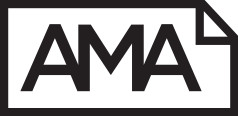On Thursday, January 15th, the Association for Manitoba Archives (AMA), the Association for Canadian Archivists (ACA), and the ACA UM Student Chapter hosted its first jointly funded and organized event: “Building Cohesion and Community across the Generations: An Evening of Conversation for Archivists & Allied Professionals.”
The event began with a supper conversation for students, or entry-level archivists, to discuss the challenges of accessing employment and quality skill-building opportunities in the archival field. A total of fifteen students participated in the discussion, which covered a variety of issues, such as changes to the job market, a need for increased opportunities to build technical skills in digital archives, the realities of starting a “portfolio career”, and a need to expand job searches to related areas (i.e. records and information management). The discussion also touched on the local hiring culture in Winnipeg and the need for entry-level archivists to network, identify their transferable skills, and find ways to market themselves professionally and to a wider market. As one student accurately remarked, “It’s all about who you know. Most jobs aren’t advertised in this city.”
Guest Speakers: Carole Garnham (Regional Information and Communication Technologies Lead for Southern Health-Santé Sud), Karen Meelker (Access and Privacy Officer/Coordinator at the University of Manitoba), and Carole Boily (Archival Consultant)
The second half of the evening students and members of the AMA had the occasion to listen to three successful professionals, who all shared stories about their personal career experiences and provided practical tips and insightful advice for successfully finding employment opportunities.
Karen Meelker, Access and Privacy Officer and Coordinator at the University of Manitoba, did her undergraduate degree in science and never imagined that she would be in her current career. Meelker reminded listeners of recent headlines related to access and privacy, “Every morning I get up, have my coffee, and read the newspaper.” It is her job to stay on top of current events as it is her responsibility to “keep the university out of the headlines.” She explained that there is a lot of employment opportunities in her field, and that anytime one hears terms such as “big data”, “cloud computing”, “hacktivism”, or “freedom of information”, there is guaranteed to be an access and privacy officer on the job. She has hired students from the archival program in the past, and encourages others looking for work to consider this area of opportunity. Above all, her take home message was: “Don’t stop learning. Be a life-long learner”.
Carole Boily, independent archival consultant, shared her personal career story with students about how she “accidentally” became an archivist in the 1980s. Boily described several of the diverse archival positions she has held in Winnipeg, ranging from archivist of the Grey Nuns Collection for over thirteen years to her archival involvement with arts-based organizations, such as the Manitoba Theatre Centre, helping them to assess and improve their archival collections. She explained that the records of the arts community are “generally not in a good position” and that trained archivists have the opportunity to assist this community in the preservation of their materials. She also touched on the challenge of finding contracts that can afford to pay you want you are worth. Overall, she says that she has been able to stay steadily employed and has had a rewarding and enjoyable career. For those with the desire and ability, a career in consulting is possible, and many Canadian archivists have developed successful careers as consultants.
Carol Garnham talked about the need for new professionals to “think big”, learn to “knit” our skills into other job descriptions, and avoid sitting around and waiting for opportunities to come our way. Garnham explained that she expanded her own career opportunities by building skills through experience, and by constantly taking courses such as business management, electronic records management, technical writing. Essentially, she has done whatever she needs to maintain a high level of knowledge and resiliency. She encouraged students to get experience wherever they can, even if that means putting time aside to volunteer for a few hours each week. And for those who are interested, she believes that faith-based corporations and privately held companies are markets that archivists should really consider approaching as they often have both a need for assistance and the money to pay for it.
Overall, the presentations and discussion were encouraging. While the job market has changed and it is unlikely that most entry-level archivists will access full-time employment at a single institution upon graduation these days, there are other ways to make a good living in the field. Meelker, Boily, and Garnham exemplified a few of those potential avenues of opportunity and for providing us with insight into their professions, and their words of wisdom, we are incredibly grateful. Above all, the main message that was driven home was that in order to be successful, one has to be proactive in building skills and finding experiential learning opportunities, think “outside the box”, and look for ways to sell archival services to a diverse market of individuals, organizations, companies, and municipalities who are all in need of a records professional, and just are not aware of it yet!
Event organizers: Nicole Courrier (ACA President), Jessica Nichol (ACA Vice-President), Petra Lundy (AMA Student Rep.), and Sarah Story (AMA Information & Outreach Organizer).

Student Member at Large
Sarah Story